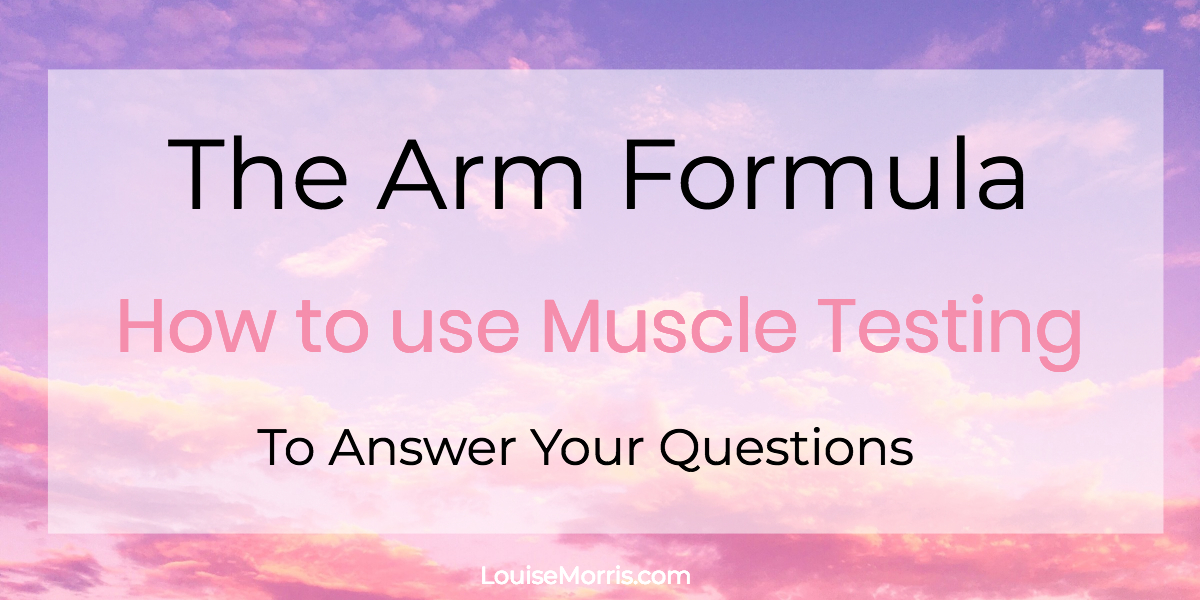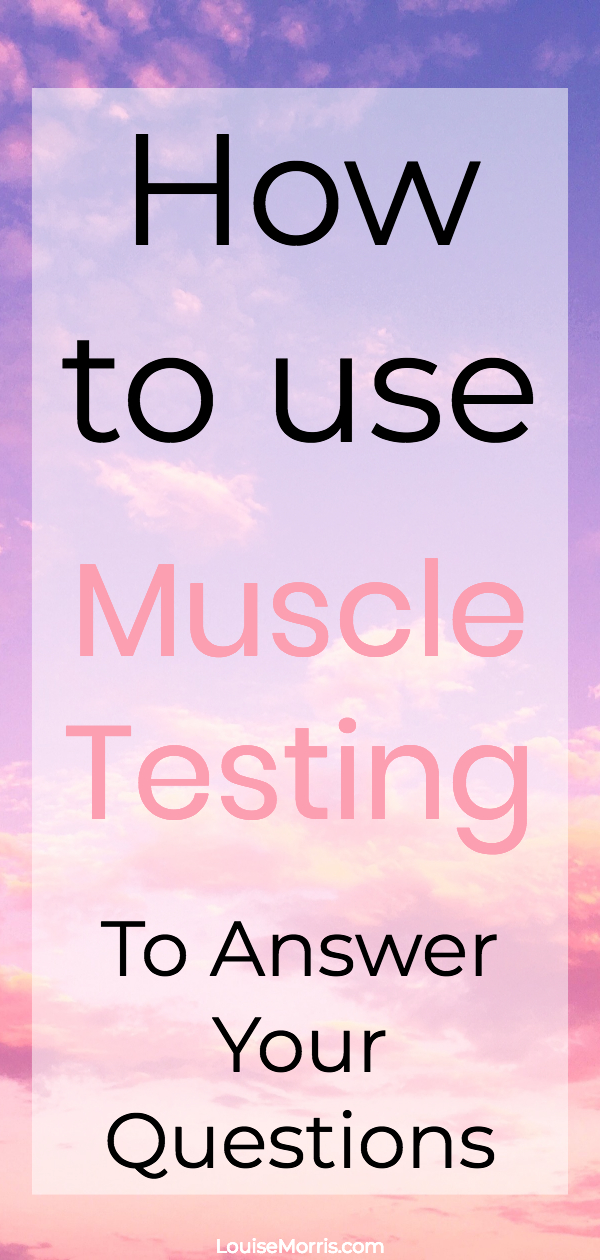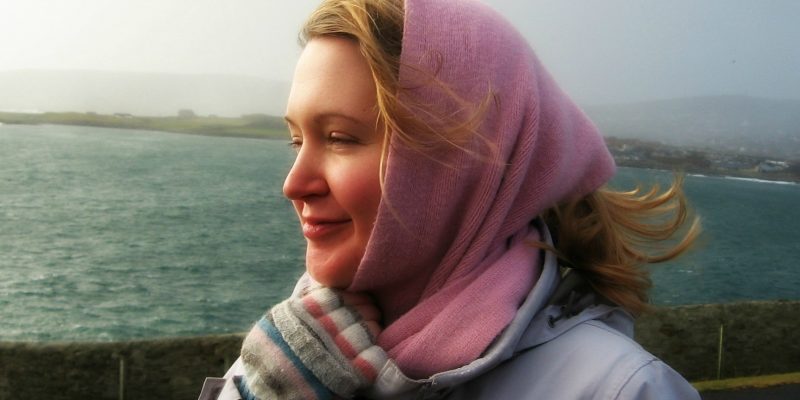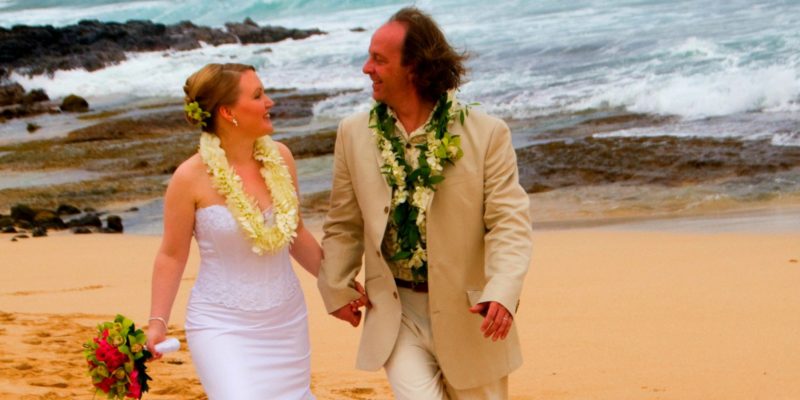
Muscle testing is a fascinating tool to add to your toolbox. Despite being widely written about it seems to remain a virtual secret, which I’m hoping to fix with your help. The scientific name for this tool is applied kinesiology (meaning the study of muscles and their movements) which gained recognition in the ’60s through the work of Dr. George Goodheart.
Our bodies inherently know if something is good for us or not
Goodheart discovered that muscles would strengthen in the presence of beneficial stimuli, such as health supplements, but weaken in the presence of harmful stimuli, such as artificial sweeteners. Typically they measured this response in the arm muscles – hence the name of this formula.
Goodheart concluded that the body inherently knows if something is good or bad for it, the implications of which are astounding.
Dr. John Diamond discovered that muscles would strengthen or weaken not just for physical stimuli – such as supplements and sweeteners – but for intangible stuff like emotions, such as feeling happy or sad. Positive emotions would make muscles strengthen, whilst negative emotions would make muscles weaken.
Statements like “I hate you,” and “I love you,” also produced a muscle-weaken or muscle-strengthening response.
You can read more about Dr. Diamond’s work in his book Your Body Doesn’t Lie.
Our bodies inherently know truth from falsehood
Eventually, it was discovered that this same muscle response could indicate truth from falsehood, such as “My name is Louise,” or “My name is Jim Bob.”
Only one of those statements would make my own muscles strengthen because only one of them is true. In this case, the strong muscle response indicates true/yes and a weak response indicates false/no.
The research showed that this true/false response works whether the person being tested consciously knows if something is true or not.
As an example, Dr. Diamond found that when he played audio tapes of people lying, the person listening would go weak – even though they had no idea if it was true or not. Their bodies knew, however.
So let’s look at what all this means for us:
- Our bodies inherently know if something is good for us or not.
- Our bodies become strong in response to positive stimulus and weak in response to negative stimulus.
- Our bodies inherently know truth from falsehood.
Are you excited yet? I know I was when I first learned about this, which is why I’ve been using this formula every day since.
Some examples of how I personally use muscle testing
- I was on holiday with my family in Budapest. One day my brother, daughter and I went off exploring in one direction, and my mum and dad when off in another direction. We didn’t have mobile phones with us and when it came time to meet up I asked my arm which direction we should walk to meet up with my parents. I got the answer and we started walking in that direction. We met up five minutes later.
- One time I was in New York meeting my husband John – we were dating at the time – and I wanted to find a rosary. We spent almost a whole day walking around Manhattan in search of a rosary. Finally, at around 5 pm, I asked my arm which direction I’d find a rosary. We set off walking and within twenty minutes we came upon a small Catholic church. I felt guided to go inside, which I did. I went up to a person I thought worked there and asked him if he knew where I could buy a rosary. He didn’t know and didn’t work there, but a woman praying behind us heard me and said she would go home and bring me back one of hers! The rosary she gave me was one that had been blessed in Rome. I have it to this day and it is one of my most treasured possessions.
- Before I started dating John, an ex-boyfriend contacted me and asked if we could rekindle our relationship. I asked my arm and it said no (went weak). John and I started dating shortly after and we were engaged eight months later. Thank God I trusted my arm, or I would have missed out on the love of my life.
Those are just a few examples, but I have also used my arm to test:
- what foods to eat
- if you need to drink more water
- what to order from a menu
- what face cream is good for my skin
- what supplements are good for me
- whether to let my daughter stay at a friend’s house
- whether to start a coaching practice
- which spiritual practices to focus on (something I do for clients, too)
- I even used it to write this formula!
I’ve also used it for big decisions, like whether to accept a job offer. There have been times, however, when I ignored by arm and accepted job offers I later regretted.
Related articles:
The Energy of Music – Is your choice of music helpful or harmful?
Do Energetic and Spiritual Practices Make Any Difference?
How I use muscle testing with my clients
I use muscle testing to develop a personalised program for my coaching clients. I have a vault of tools and practices that help people get out of their “stuck-ness” and into a more positive life experience, but I use muscle testing to pick which tools from the vault will create the most change for my clients at their current stage of life. That way I can be certain my clients will receive the most benefit from our work together.
I also use muscle testing to measure the current state of my clients’ energy, something I wrote about here.
And finally, I use the Arm Formula to set the price of my services. Many years ago, I had a client who asked me why my hour-long Reiki sessions were priced lower than other practitioners in the area. I told her I simply muscle-tested the price.
How to muscle test, either with a partner or solo
There are several ways to do muscle testing but I’m going to show you two: one with a partner and one without.
When I first learned muscle-testing I learned the two-person version, which infuriated my daughter as she was invariably the person I asked to test my arm.
I also wanted to be able to use this technique when I was alone and didn’t have a partner available to do this test – like the time I was in an airport when I wanted to test which duty-free face cream would be best for my dry yet spotty skin. I was too embarrassed to ask a stranger to push my arm and ended up not buying anything.
After a lot of searching, I found several solo techniques that proved reliable; I’ll share with you the easiest.
Partner Method
- Stand erect with one arm held out straight to the side, parallel to the floor.
- Your partner, facing you, places two fingers on your wrist of the outstretched arm, the other on your shoulder.
- Calibrate your yes/truth response by saying: “My name is [your name].”
- Your partner then pushes down on your wrist while you resist. Your arm should remain strong.
- Calibrate your no/false response by saying: “My name is [fake name].”
- Your partner again pushes down on your wrist as you resist, but this time your arm weakens and your partner will be able to push your arm down.
- Do this several times with different statements to get the hang of it.
Solo Method
- Make a circle with your thumb and index finger touching at the fingertips.
- Put your other thumb through the circle you just made, then touch that thumb and index finger together to form two interlinked circles.
- Calibrate your yes/truth response by saying: “My name is [your name].” Try and pull your interlinked fingers apart. Your fingers should remain linked.
- Calibrate your no/false response by saying: “My name is [fake name].” Try to pull your interlinked fingers apart. Your fingers won’t be able to remain linked.
- Do this several times with different statements to get the hang of it.
Notes
- You’ll find your results more accurate if you phrase your questions as a statement, e.g. “My name is Louise,” vs. “Is my name Louise?”
- You don’t have to say your statements out loud for it to work. Also, if you are doing the two-person method, you could have your partner say the statement instead, e.g. “Your name is Louise.”
- You can test physical things like supplements and face cream. In this method, the subject holds the object to the solar plexus whilst the tester pushes down on the subject’s arm.
- I have never had any accurate results using this tool to predict the future – such as what the winning lottery numbers will be. I know, that would be fun, right, but in my experience, the results are reliably inaccurate.
- My favourite book on this subject is Power vs. Force by David Hawkins.
I hope you give this formula a try and share it with your friends. As I said, for some reason it remains a virtual secret, and something this amazing should be shared with everyone.
Louise x




Hi Karen! Yes, that was one of Dr Diamond’s discoveries mentioned above. Audio tapes of people lying were played to volunteers who didn’t consciously know if the recorded statements were true or not. All the volunteers tested weak after hearing false statements (lies).
Hello Louise,
Can you get an accurate answer if you test yourself to see if someone else is lying? For example, when so and so tells me this thing or that, they were telling me the truth.
Thanks,
Karen
A reader emailed me the following question. I thought it would be useful to include it here.
Reader: I’ve been aware of this arm formula before and then forgot about it. But it came into my mind again today and when I looked it up it brought me to your page. I have a query about using the formula. You mention using it for wondering about the right job, getting back with an ex, looking for a church etc. What phrases did you say in those instances before trying your arm? Thanks for your help,
Louise: Great question! There are different ways you can word those statements, but for me, I like to always know what is for my highest good. So I frame my statements like this:
It is for my highest good to apply for x job.
It is for my highest good to accept x job offer.
It is for my highest good to eat x food.
And so on.
Thanks for asking and reaching out. Have fun with this!
My very best wishes,
Louise
Hi Phillip,
I haven’t seen accurate results with regards to questions about the future. However, if you find it works for you then let me know.
I wrote about the actual tools I used to find my husband in my ebook Where is my Soul-mate
Louise
Can you find a spouse with muscle testing? Like in theory would it work? For example ask what town she’s in, what color hair, she etc
Hello Miguel,
I’m not sure what you mean when you say you can’t do kinesiology yourself. If you mean you don’t get accurate results doing the solo version, then you should probably stick to the partner version.
If you’ve been learning through Dr. David Hawkins then you are all set. His instructions are very clear.
My best wishes,
Louise
Hello Louise!
I am contacting from Portugal.
I did a Google research about kinesiology and I came across your post “The Arm Formula: Using Muscle Testing To Answer Your Questions”.
I think I cannot do myself kinesiology. Do you have any advice or you had the same experience at the beggining?
I learned through Dr. David R.Hawkins. Any thought or advice to make kinesiology work with me?
Thank you.